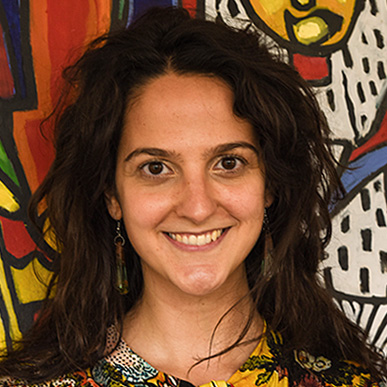Sara Panata: Hidden archives. Writing the history of women's movements in Nigeria


HUMA Doctoral Seminar Series
Topic: Using the case study of women's movements in Nigeria, this presentation explores the specific challenges of writing about gender history in Africa through public archives. More specifically, it will provide a comparative analysis between using public archives or personal archives to conduct research on gender studies in Africa.
On the one hand, this presentation will underline the hurdles of doing research on women's movements in Africa by using public archives, where women's activities are often under-reported. Women are frequently mentioned only in passing, with no elaboration on their movements, actions and fights. On the other hand, attention will be drawn to how researchers can use personal papers to overcome these challenges. Personal papers may be identified with diaries, autobiographies, letters, lectures, articles, memoranda, notebooks or photographs, that represent a historically invaluable insight to study women's activities and, most importantly, the social and political constructions of gender in different periods and cultures. After exploring the great potential of personal archives for the writing of gender history, the presentation will linger on the key practical, theoretical and ethical issues involved in conducting archival research based on personal papers in Africa.

About the speaker: Sara Panata is a historian specialising in Modern History and Gender Studies. In her PhD thesis, "Nigeria marches on. Feminist and women’s movements in the national struggle for socio-political rights (1944–1994)", she examined the trajectories of eleven feminist movements in Nigeria over half a century of socio-political action, thus analysing the country’s political history from an alternative point of view.
As a postdoctoral researcher (Young researcher Prize, Fondation des Treilles 2021, Centre d’Histoire Sociale), she studies the gender history of political citizenship in anglophone West Africa (Sierra Leone, Ghana, and Nigeria) from the 1930s to the 1970s through a comparative and transnational approach.
Among her latest articles are "Citoyennes nationales et panafricaines. Le congrès de la Femme africaine à Ibadan en 1960" (2021) [to be translated in English in 2022: National and Pan-African citizens. The Ibadan “African Woman” Conference of 1960] in Clio, Femmes, Genre et Histoire and 'Dear Readers...': Women’s rights and duties through letters to the editor in the Nigerian press (1940s–1950s), (2021) in Sources.